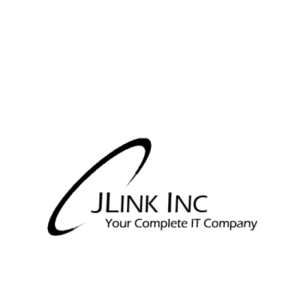In the heart of Pennsylvania, Bloomsburg stands not just as a beacon of community and education but also as a thriving hub for businesses, both large and small. As these businesses increasingly rely on the digital world to expand their reach, manage operations, and connect with customers, the significance of secure Internet connections has never been more pronounced. The Bloomsburg Commercial Business Internet landscape offers many options, catering to various business needs, from high-speed connectivity to robust security measures. However, with great power comes great responsibility. The digital age, while presenting boundless opportunities, also brings with it a host of security challenges. Cyber threats loom larger than ever, making the security of business internet connections a top priority for Bloomsburg’s commercial entities. This blog post aims to navigate through the critical best practices in internet security, ensuring that businesses in Bloomsburg can leverage the power of their commercial internet connections while safeguarding their digital assets and customer trust.

The Landscape of Bloomsburg Commercial Business Internet
Bloomsburg, a bustling town nestled within Pennsylvania, has become a focal point for businesses seeking robust internet solutions. The commercial business internet landscape in Bloomsburg is diverse, offering a range of services designed to meet the varying needs of its commercial entities. From high-speed fiber-optic connections that facilitate lightning-fast data transmission to reliable satellite services that ensure connectivity in even the most remote locations, the options are extensive.
A significant portion of Bloomsburg’s commercial success can be attributed to its adaptive internet infrastructure. Local providers such as JLink have recognized the critical role that secure and dependable internet services play in modern business operations. They offer tailored solutions that include not just connectivity but also enhanced security measures to protect against digital threats. These providers equip businesses with the necessary tools to safely navigate the online world, from advanced encryption methods to secure firewalls and beyond.
Moreover, the evolution of the Bloomsburg commercial business internet scene reflects a broader national trend toward digital transformation. As more businesses migrate their operations online, the demand for internet services that can guarantee both speed and security has skyrocketed. In response, Bloomsburg’s internet service providers have continually upgraded their technologies and protocols, ensuring that local businesses remain competitive in a global marketplace.
This dynamic internet landscape serves as the backbone for Bloomsburg’s commercial sectors, enabling everything from everyday operations and customer interactions to the exploration of new digital frontiers. With a keen eye on both the present needs and future advancements, Bloomsburg stands as a testament to the power of high-quality commercial internet services in driving business success and innovation.
Common Security Threats Facing Businesses Online
In the digital realm, businesses face a myriad of security threats, each with the potential to compromise sensitive data, disrupt operations, and erode customer trust. Among these, phishing attacks, malware infections, and ransomware are particularly prevalent and damaging.
Phishing Attacks: Phishing remains one of the most common methods cybercriminals use to gain unauthorized access to business systems. By masquerading as a trustworthy entity, attackers trick employees into revealing sensitive information, such as login credentials or financial data. These scams often arrive via email, enticing the recipient to click on malicious links or attachments that lead to security breaches.
Malware Infections: Malware, or malicious software, includes a range of harmful programs like viruses, worms, and spyware. These are designed to infiltrate and damage computers or networks. For businesses, a malware infection can result in data theft, loss of productivity, and even extensive damage to IT infrastructure. Malware typically spreads through compromised websites, email attachments, or by exploiting software vulnerabilities.
Ransomware: A particularly disruptive type of malware, ransomware encrypts a victim’s files, demanding a ransom payment for their release. For businesses, this can mean losing access to critical data and systems, potentially halting operations. The rise of ransomware attacks highlights the importance of robust data backup strategies and cybersecurity measures.
These threats underscore the importance of vigilance and proactive security measures. By understanding the common challenges posed by the digital landscape, businesses in Bloomsburg can better prepare and protect themselves against the ever-evolving array of cyber threats. Implementing comprehensive security practices is not just about safeguarding data; it’s about preserving the integrity and continuity of business operations in the face of potential digital crises.
Essential Security Practices for Bloomsburg Businesses
To ensure the digital well-being of businesses in Bloomsburg, it’s crucial to adopt a series of foundational security practices. These practices not only protect against the common threats detailed previously but also fortify businesses against evolving cybersecurity challenges.
Firewalls and Encryption
- Firewalls: A robust firewall acts as the first line of defense, controlling incoming and outgoing network traffic based on predetermined security rules. It’s essential for businesses to set up firewalls to safeguard their networks from unauthorized access.
- Encryption: Encrypting data, both at rest and in transit, ensures that sensitive information remains secure. Encryption converts data into a coded format that can only be accessed with the right encryption key, thereby protecting it from interceptors.
Secure Wi-Fi Networks
- Secure Access: Implementing secure Wi-Fi protocols, such as WPA3, helps prevent unauthorized access to a business’s wireless network.
- Guest Networks: Offering a separate Wi-Fi network for guests or customers can protect your main network from potential threats that guest devices might carry.
Regular Software Updates
- Keeping all software up to date is critical. Software updates often include patches for security vulnerabilities that have been discovered since the last update.
- Automated update systems can ensure that software is always current, reducing the risk of exploitation by cyber attackers.
Employee Training
- Employees should be trained to recognize phishing attempts, understand the importance of using strong passwords, and be aware of the company’s data security policies.
- Regular cybersecurity awareness training can drastically reduce the likelihood of employees inadvertently compromising business data.
Implementing these essential security practices forms the cornerstone of a comprehensive cybersecurity strategy for Bloomsburg businesses. By taking proactive steps to secure their digital assets, companies can not only prevent data breaches and cyber attacks but also build a culture of cybersecurity awareness among their employees. This culture serves as an additional layer of defense, ensuring that all stakeholders understand the importance of and contribute to the business’s overall digital security.
Advanced Security Measures
For Bloomsburg businesses aiming to further bolster their cybersecurity defenses, adopting advanced security measures is essential. These advanced tactics provide an additional layer of protection, ensuring that companies can defend against sophisticated cyber threats and mitigate potential risks.
VPN Use for Remote Access
Virtual Private Networks (VPNs): A VPN creates a secure, encrypted tunnel for data transmission between a remote user and the company network. This is particularly crucial for employees accessing the business network from outside the office, as it safeguards data from interception over public or unsecured networks.
– Implementing a VPN policy ensures that remote access to the business’s network is both secure and controlled, preventing unauthorized access.
Multi-Factor Authentication (MFA)
Enhancing Security with MFA: Multi-factor authentication requires users to provide two or more verification factors to gain access to a resource, significantly reducing the chances of unauthorized access due to compromised credentials.
– By implementing MFA, businesses add an extra layer of security that goes beyond just passwords, making it much harder for cybercriminals to breach their systems.
Regular Security Audits
Conducting Security Audits: Regularly scheduled security audits help identify vulnerabilities within a company’s IT infrastructure. These audits can uncover potential weaknesses in the network, applications, and other systems before they can be exploited by attackers.
– Security audits should be comprehensive, assessing both technical aspects and employee adherence to security policies, ensuring that all potential vulnerabilities are addressed.
These advanced security measures are crucial for businesses in Bloomsburg looking to protect themselves against increasingly sophisticated cyber threats. By implementing these strategies, companies can significantly enhance their cybersecurity posture, safeguarding their assets, customer data, and reputation in the digital realm. Integrating these practices requires a commitment to ongoing assessment and adaptation to new security challenges, ensuring that Bloomsburg businesses remain resilient in the face of cyber threats.
Creating a Response Plan for Security Breaches
Creating a robust response plan for security breaches is vital for Bloomsburg businesses to quickly recover and minimize the impact of cyber attacks. A well-structured plan ensures a coordinated and efficient response, helping to protect the business’s reputation and customer trust.
Immediate Response Steps
1. Detection and Identification: Quickly identify and confirm the breach. Determine the scope and the data or systems affected.
2. Containment: Isolate the affected systems to prevent further unauthorized access or damage. This may involve taking certain systems offline or restricting access.
3. Eradication: Once contained, eliminate the root cause of the breach. This may involve removing malware, closing security loopholes, or changing compromised passwords.
Recovery and Communication
4. Recovery: Restore affected systems and data from clean backups. Ensure all systems are secure before bringing them back online.
5. Notification: Inform all affected parties, including customers, employees, and, if necessary, regulatory bodies, about the breach in a timely and transparent manner. Adhere to any legal requirements for breach notification.
6. Documentation: Document every step taken from detection to recovery. This includes how the breach occurred, its impact, the response actions taken, and lessons learned.
Post-Incident Analysis
7. Review and Analysis: Conduct a thorough review of the incident and the effectiveness of the response. Identify any weaknesses in current security measures.
8. Update Security Measures and Response Plan: Use the insights gained from the review to strengthen security defenses and update the response plan accordingly. This might involve investing in new technologies, updating policies, or additional employee training.
Ongoing Prevention
9. Continuous Monitoring and Improvement: Implement continuous monitoring for suspicious activity. Regularly update and test the response plan to ensure it remains effective against new threats.
10. Stakeholder Engagement: Engage with stakeholders, including IT staff, management, and external security experts, to foster a culture of continuous improvement and resilience against future threats.
By meticulously crafting a response plan for security breaches, Bloomsburg businesses can ensure they are prepared to act decisively and efficiently to mitigate the impact of cyber incidents. This proactive approach not only safeguards the company’s digital assets but also reinforces its commitment to security and trustworthiness in the eyes of its customers and partners.
In today’s rapidly evolving digital landscape, securing your Bloomsburg business’s internet connection is not just an option—it’s a necessity. The stakes have never been higher, as cyber threats become more sophisticated and the potential for disruption to your operations grows. However, with the right knowledge, tools, and practices in place, your business can thrive securely in the digital age. From implementing fundamental security measures like firewalls and encryption to adopting advanced strategies such as VPNs and regular security audits, the path to a secure digital environment for your business is clear.
Remember, cybersecurity is not a one-time task but an ongoing process that requires vigilance, updates, and education. Engaging your team in regular training sessions, staying informed about the latest cyber threats, and continuously improving your security measures are crucial steps in safeguarding your business’s future.
For businesses in Bloomsburg looking for reliable and secure commercial internet services, consider reaching out to Jlink. Offering a comprehensive range of internet solutions tailored to meet the unique needs of your business, Jlink can provide the connectivity and support necessary to keep your operations running smoothly and securely. Whether you’re seeking high-speed internet options or need expert advice on enhancing your cybersecurity posture, Jlink is here to assist.
Don’t let cybersecurity concerns disrupt your business’s potential. Contact Jlink today for all your business internet and support needs, and take the first step towards a more secure, connected future for your company.

